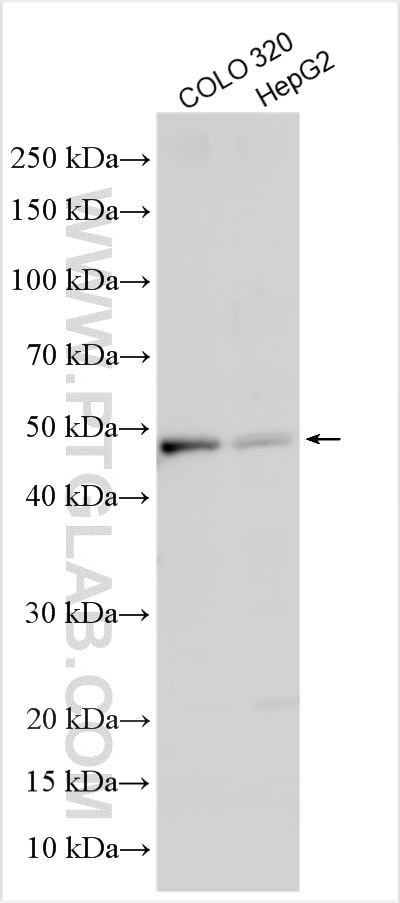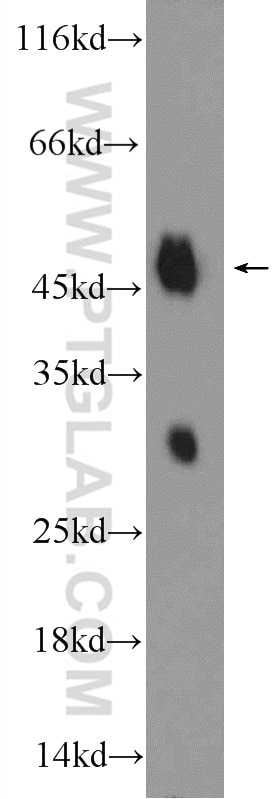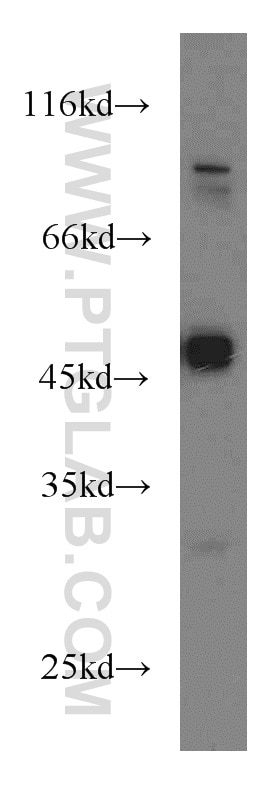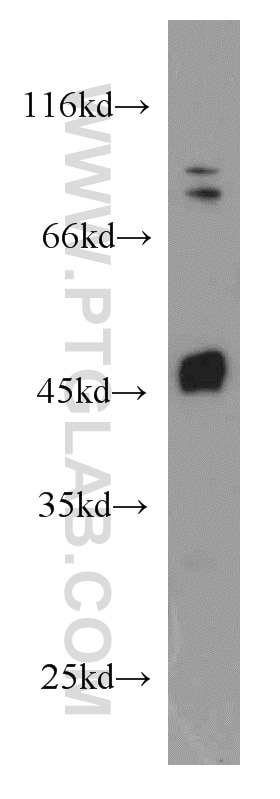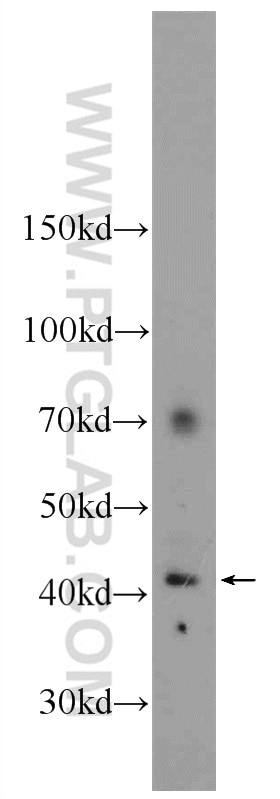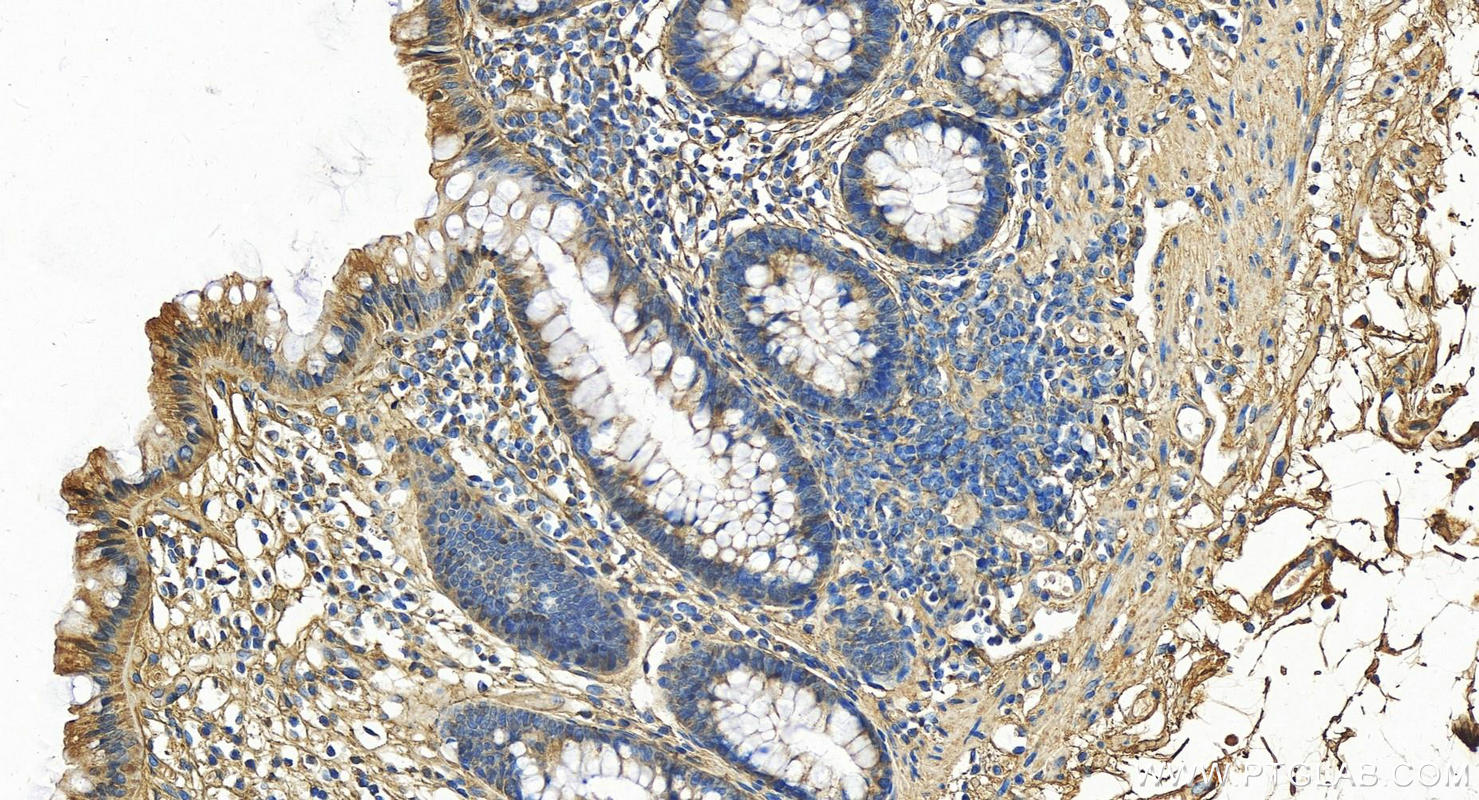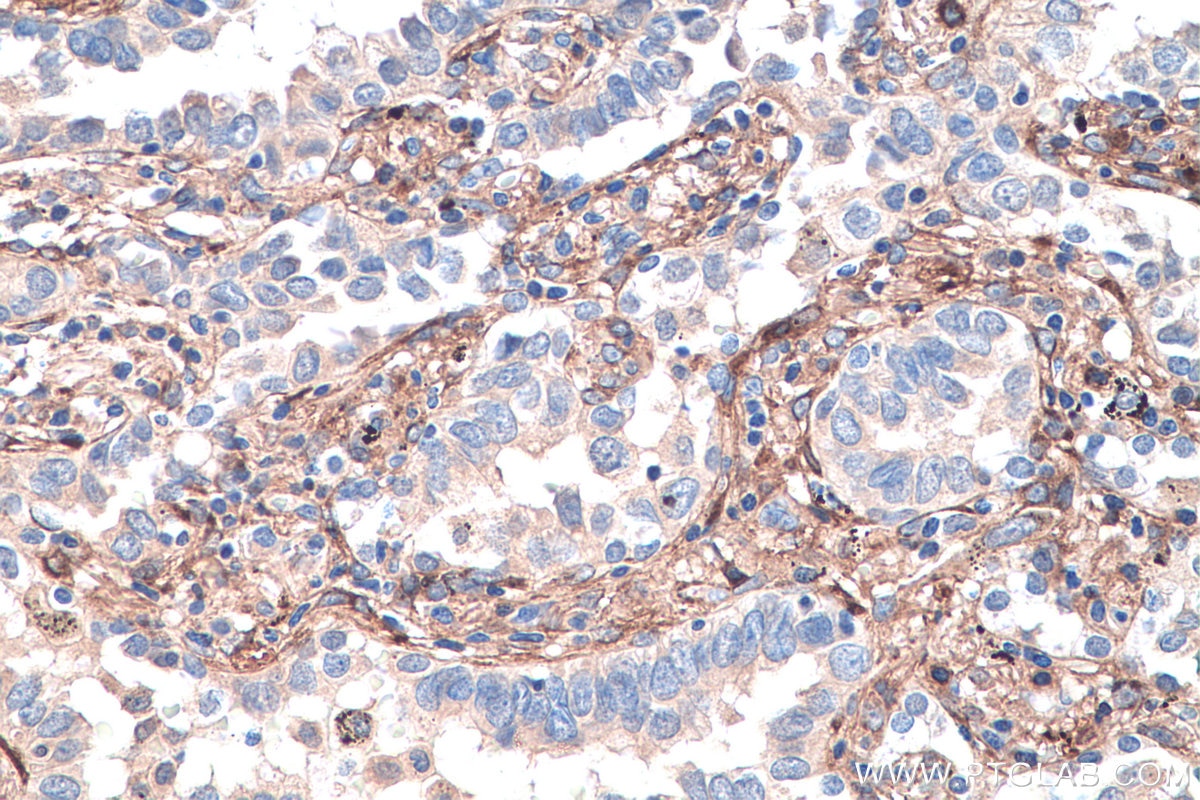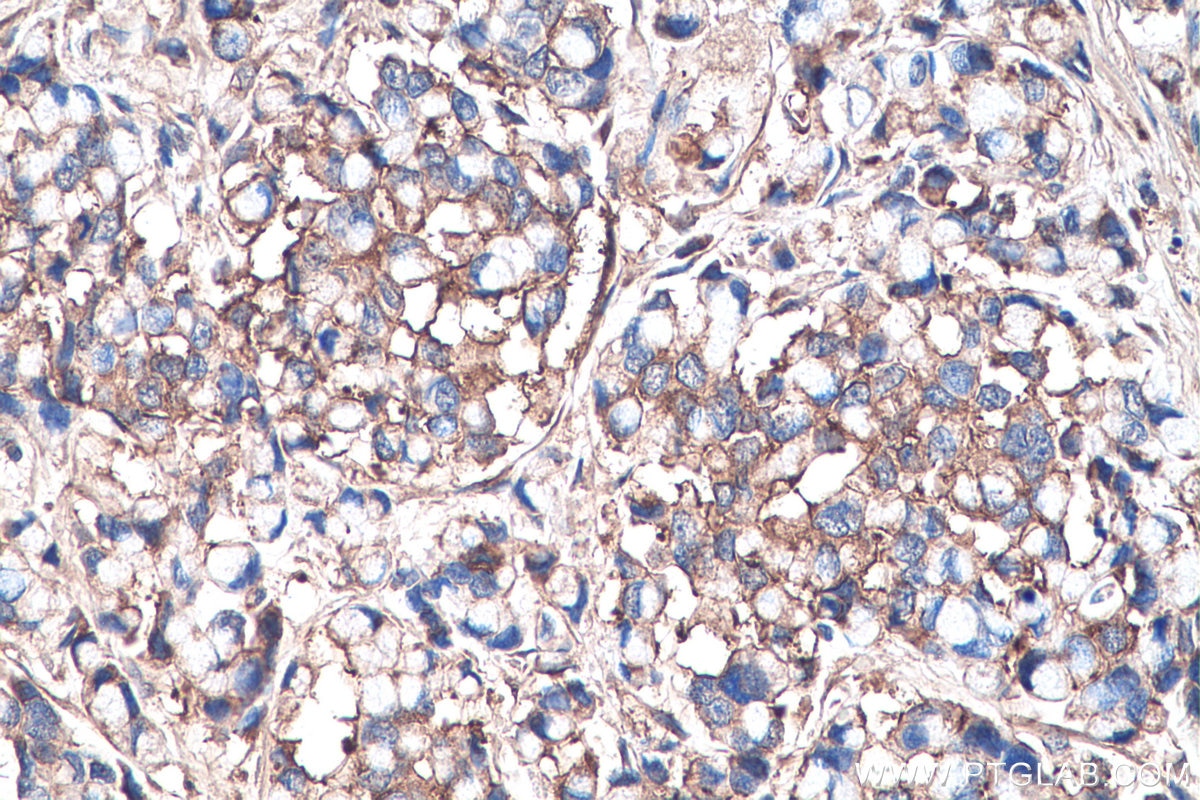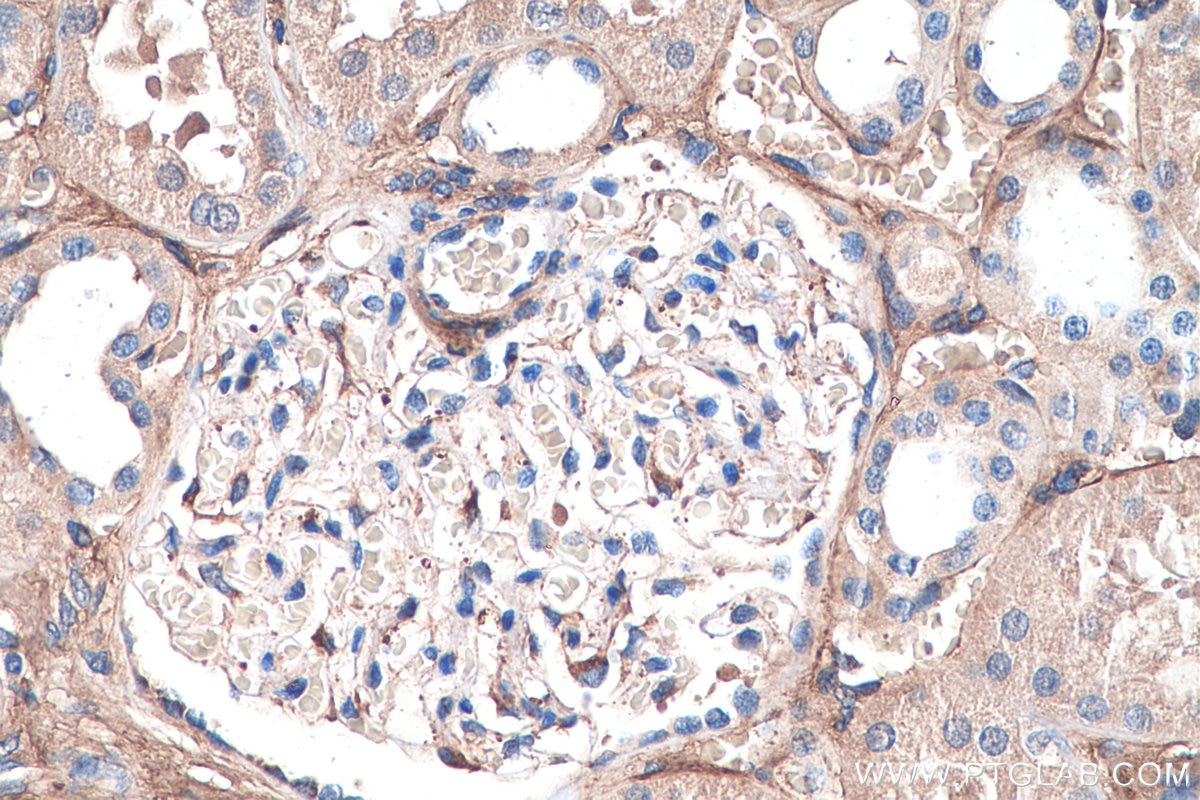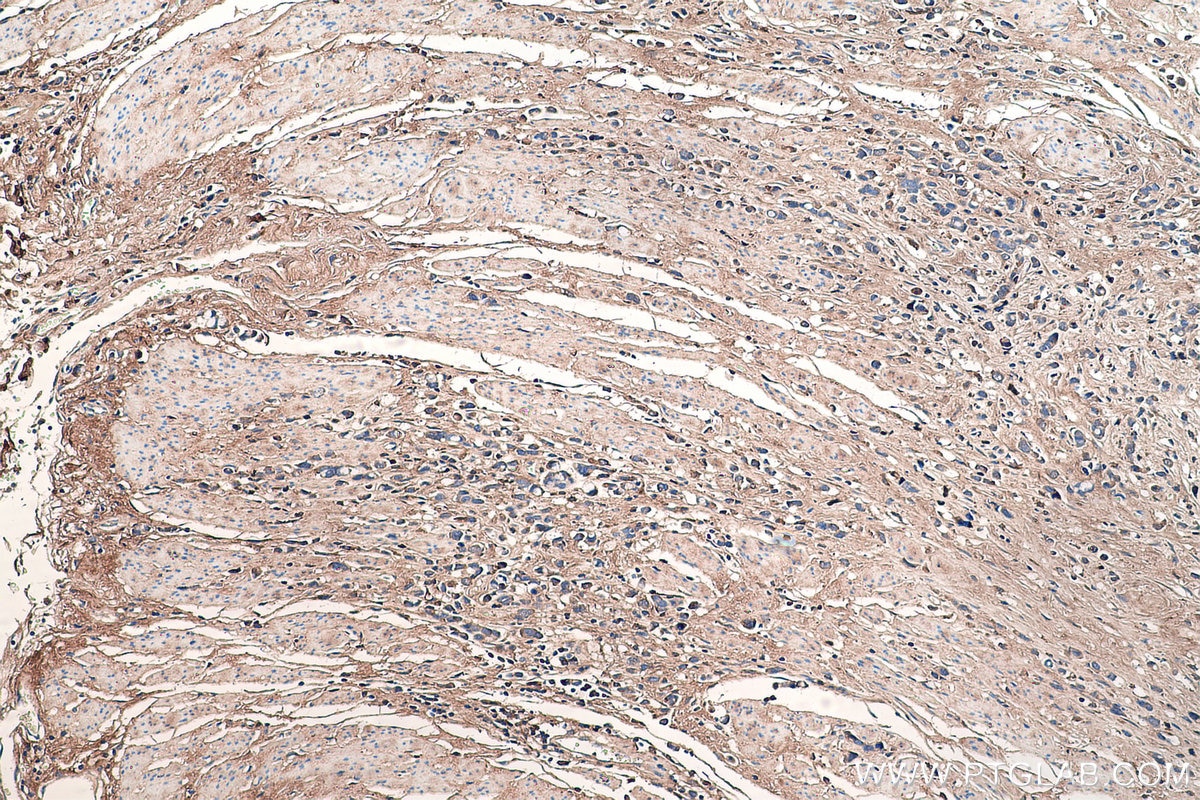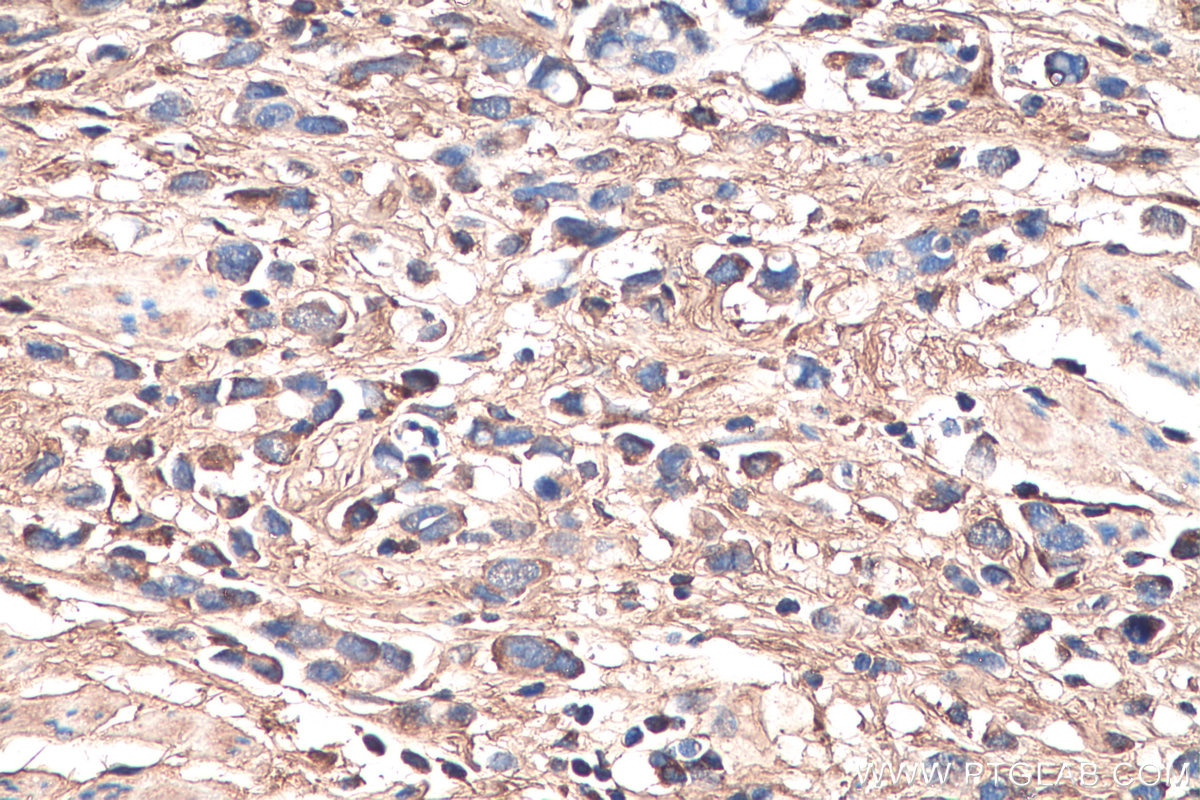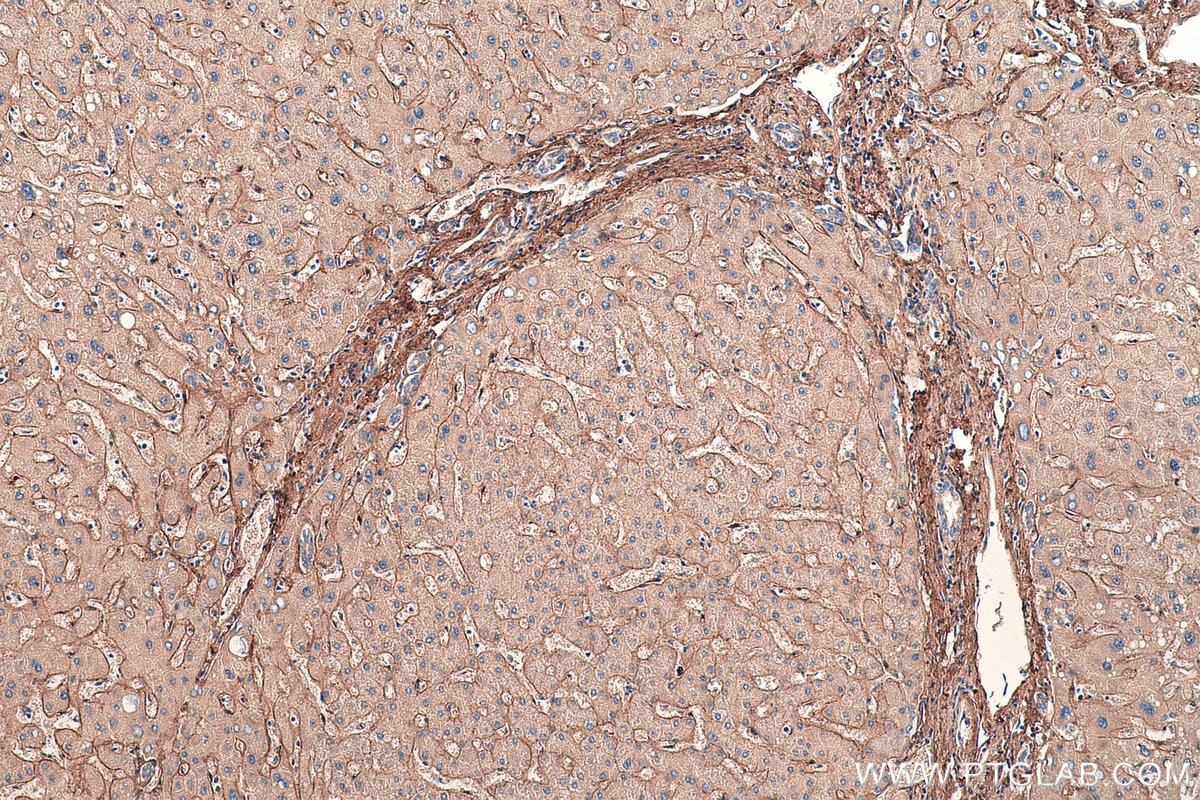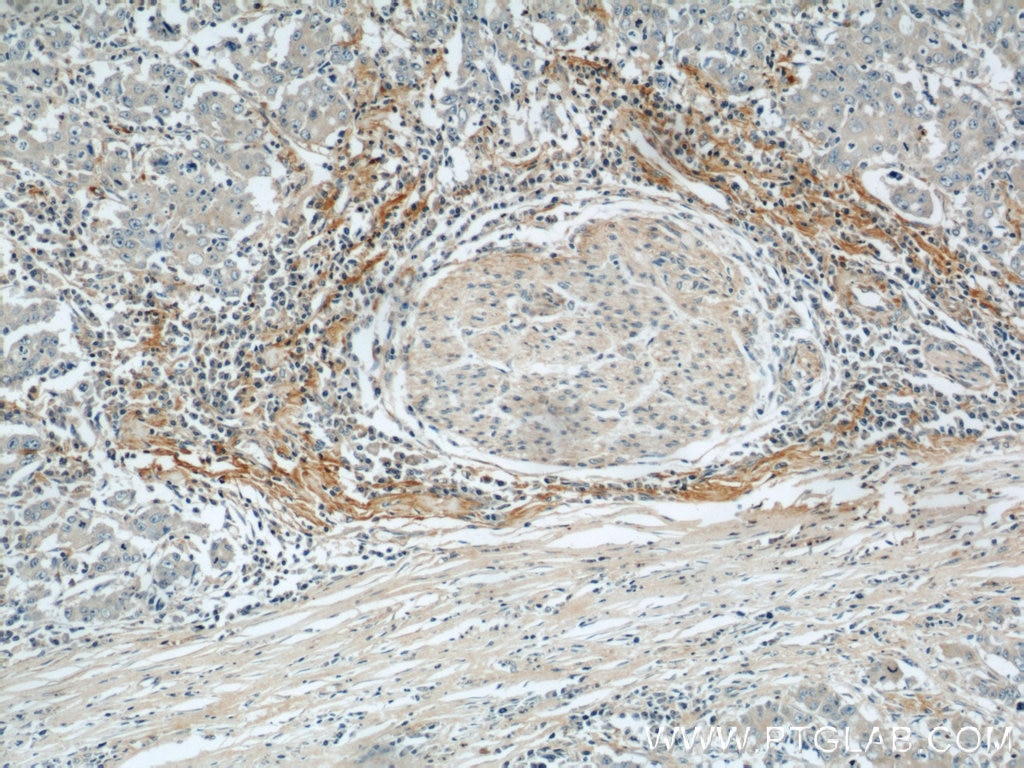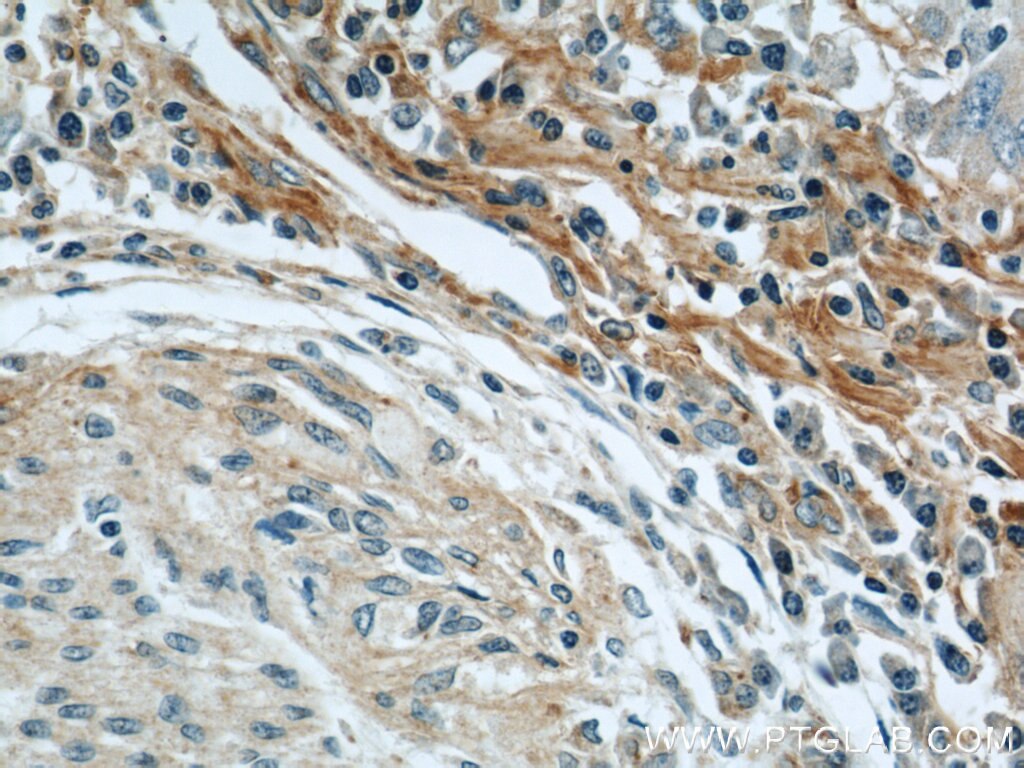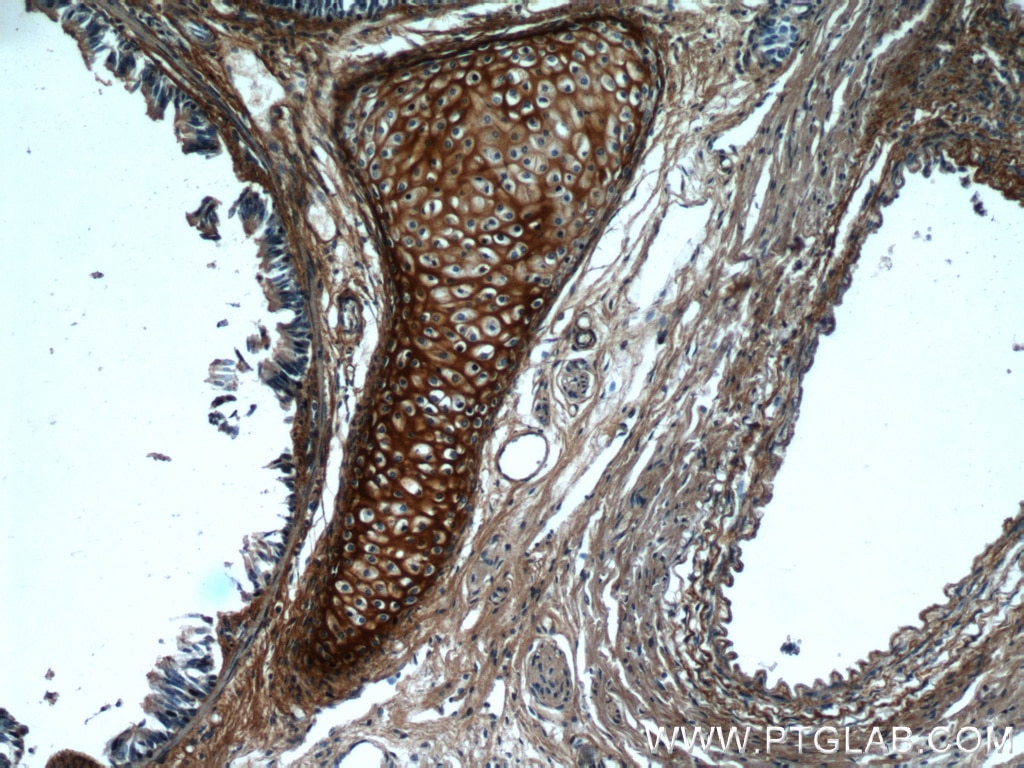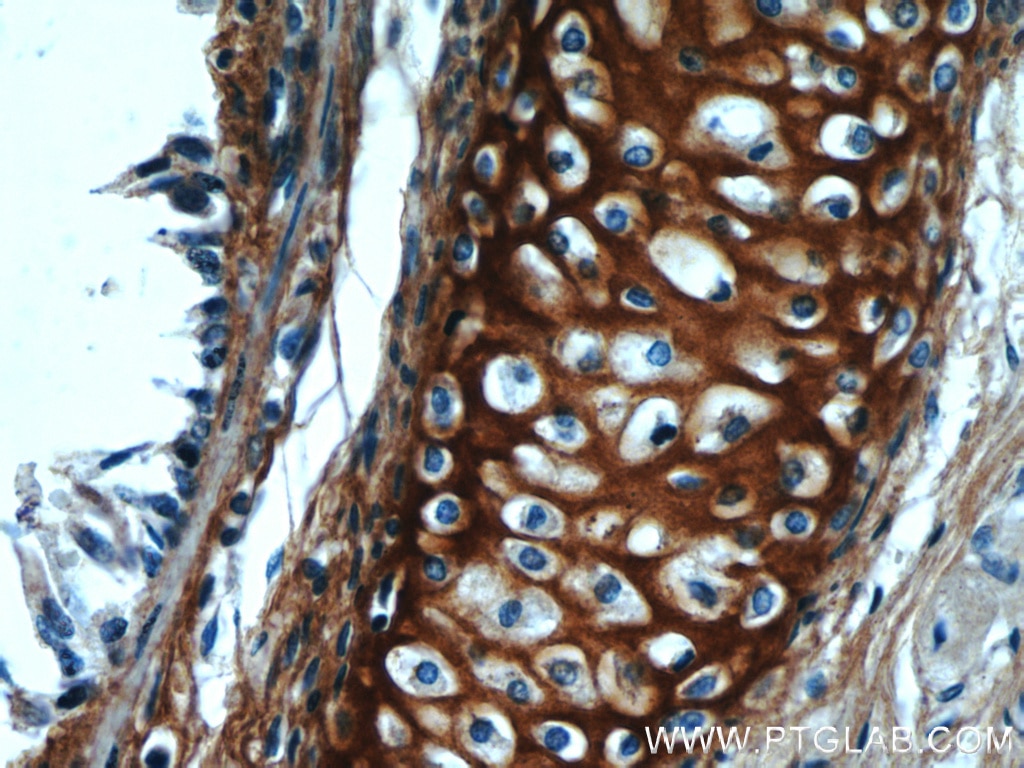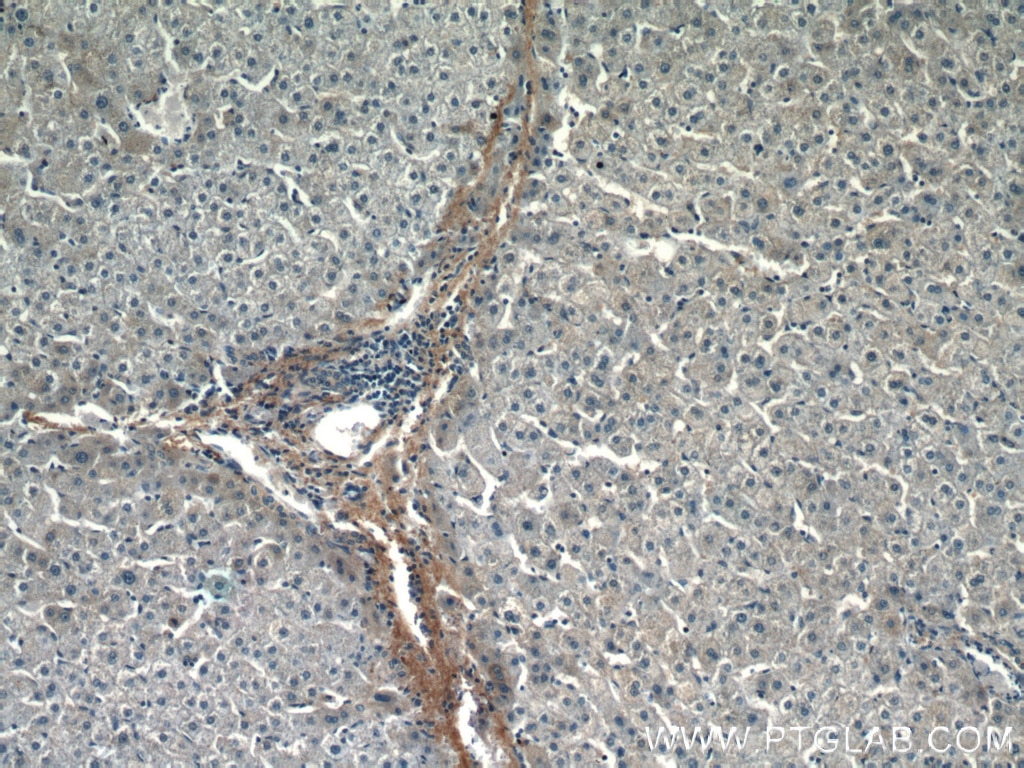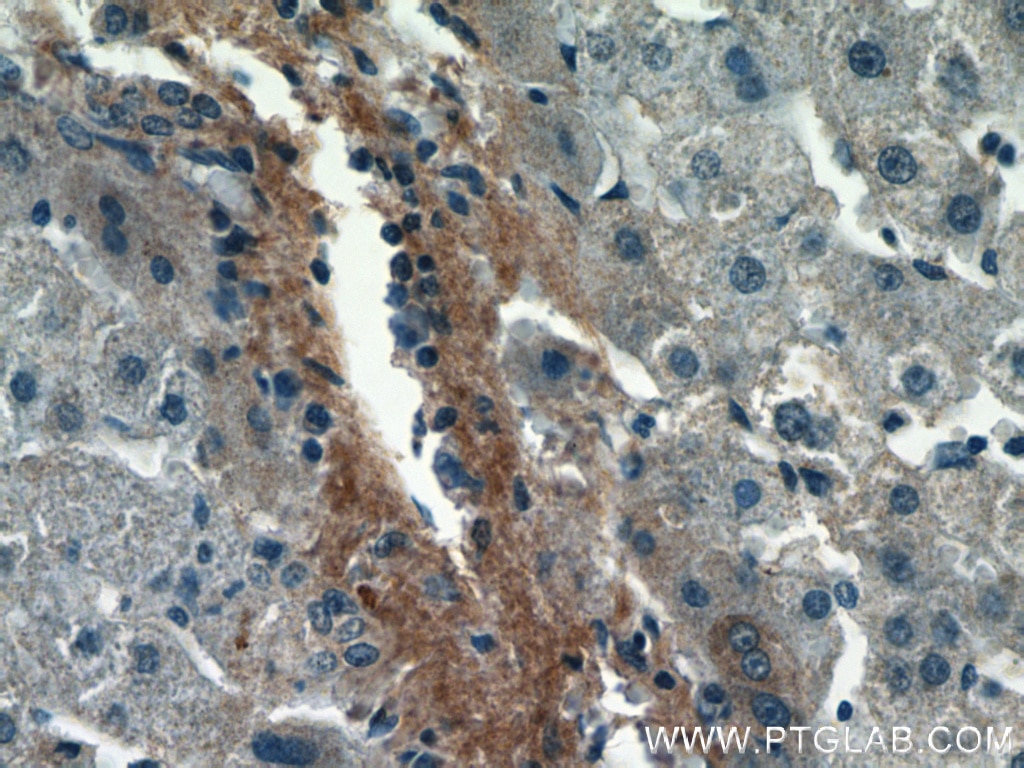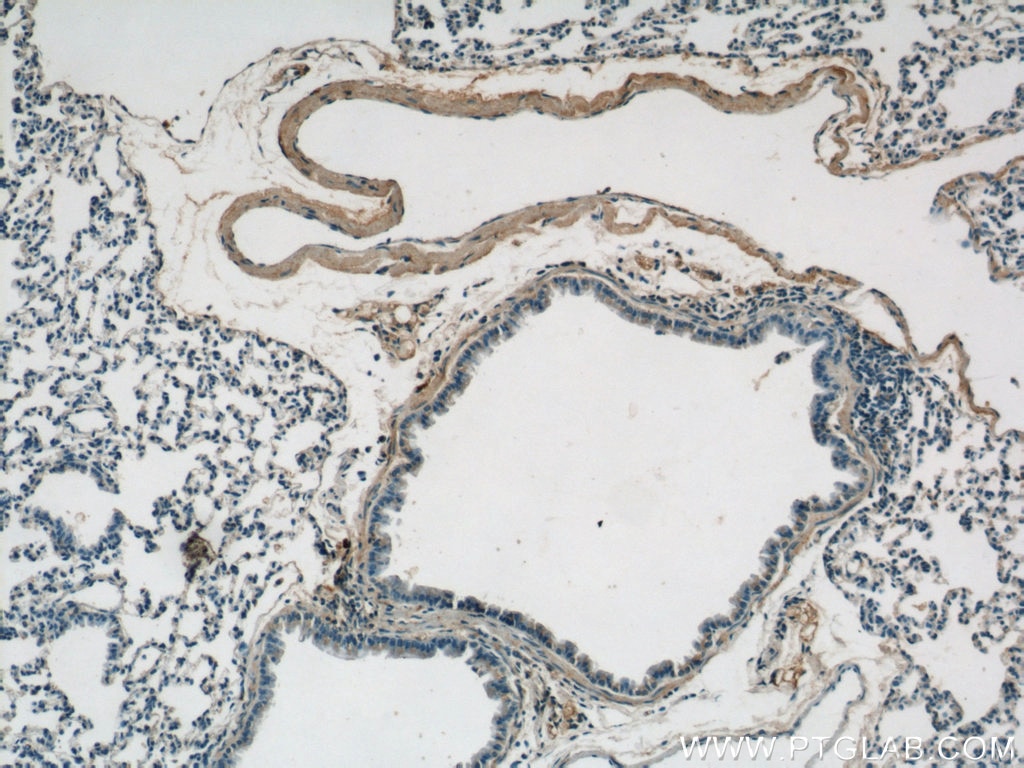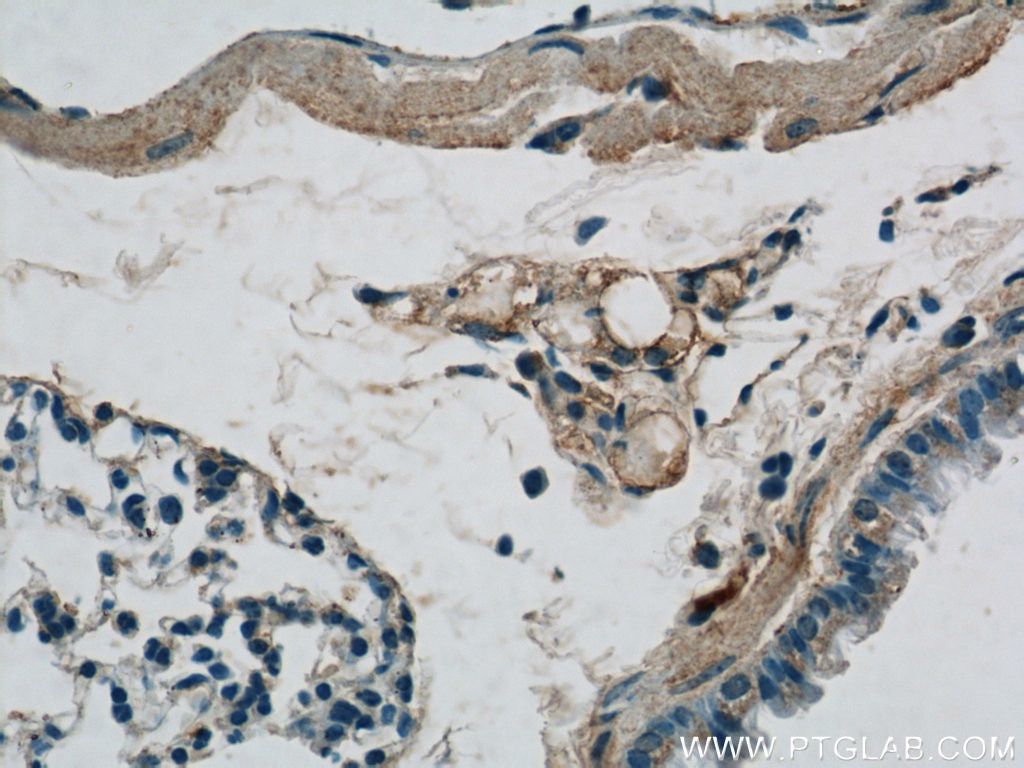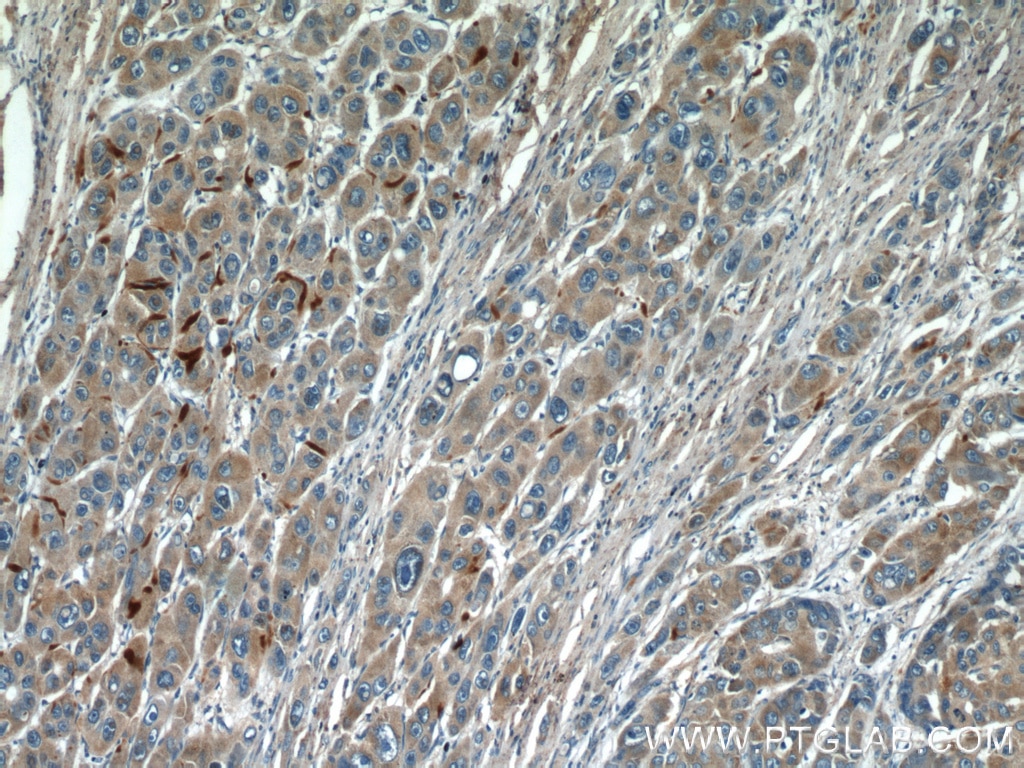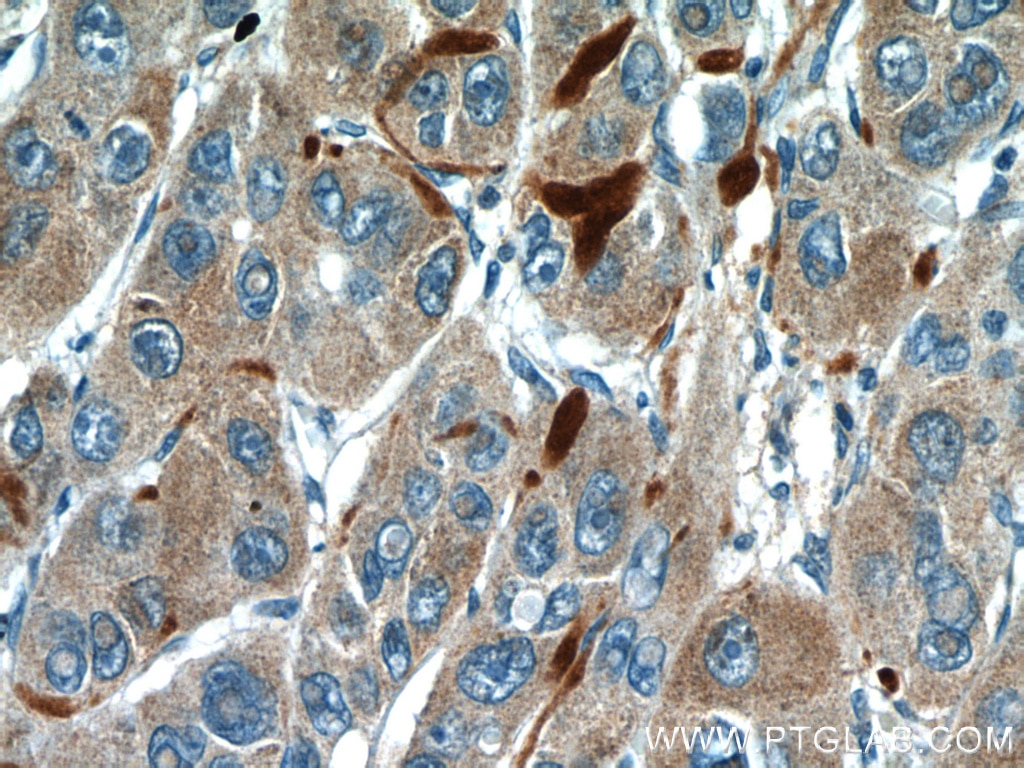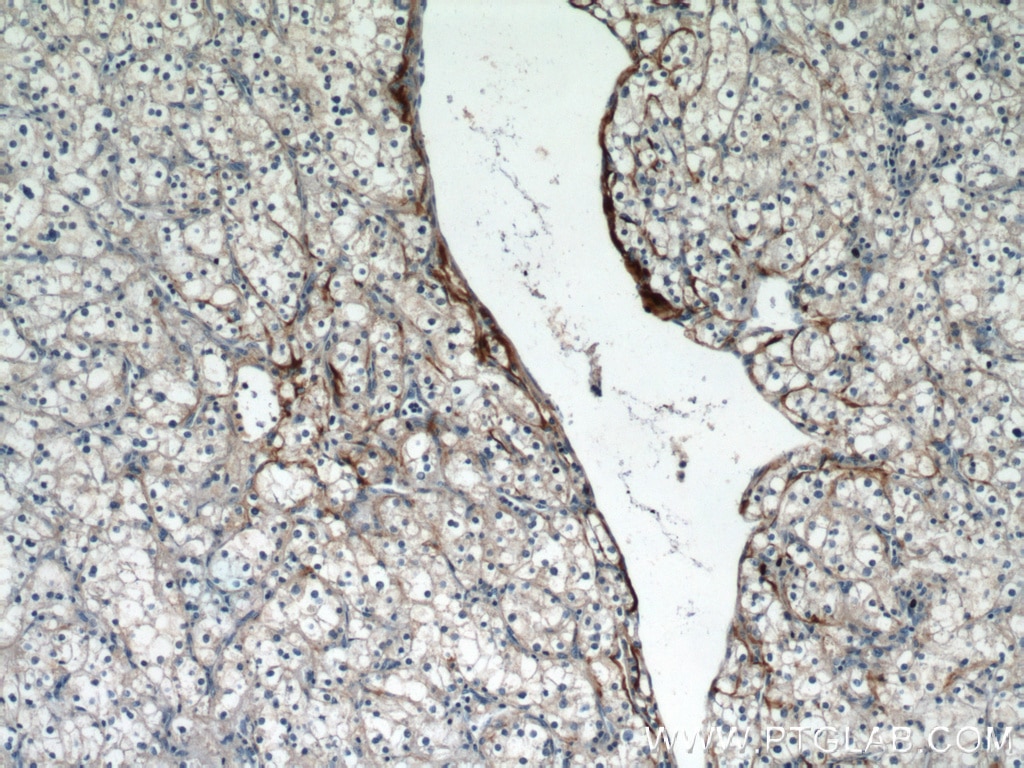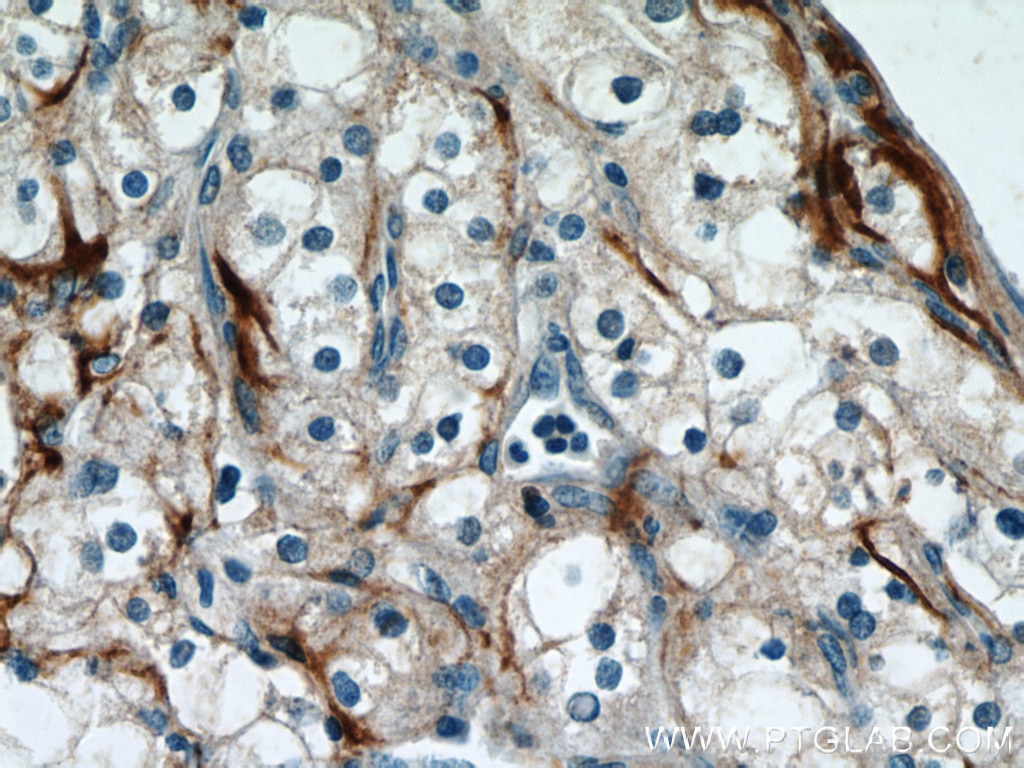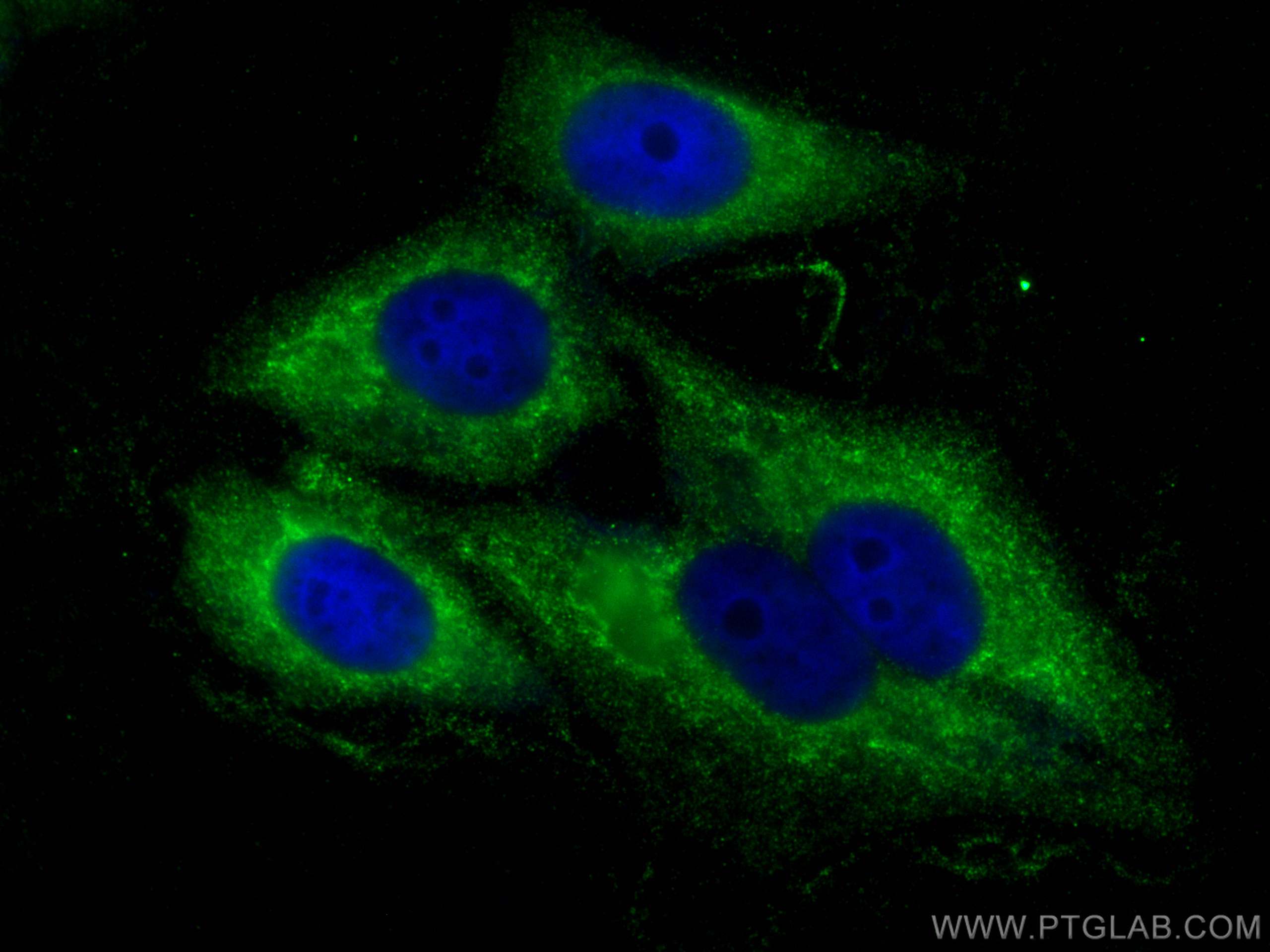- Phare
- Validé par KD/KO
Anticorps Polyclonal de lapin anti-Biglycan
Biglycan Polyclonal Antibody for WB, IHC, IF/ICC, ELISA
Hôte / Isotype
Lapin / IgG
Réactivité testée
Humain, porc, rat, souris et plus (1)
Applications
WB, IHC, IF/ICC, ELISA, Cell treatment
Conjugaison
Non conjugué
N° de cat : 16409-1-AP
Synonymes
Galerie de données de validation
Applications testées
| Résultats positifs en WB | cellules COLO 320, cellules HeLa, cellules HepG2, tissu cartilagineux de porc, tissu de muscle squelettique de souris |
| Résultats positifs en IHC | tissu de cancer du poumon humain, tissu de cancer de l'estomac humain, tissu de cancer du côlon humain, tissu de cancer du foie humain, tissu de carcinome à cellules rénales humain, tissu hépatique humain, tissu pulmonaire de souris, tissu pulmonaire humain, tissu rénal humain il est suggéré de démasquer l'antigène avec un tampon de TE buffer pH 9.0; (*) À défaut, 'le démasquage de l'antigène peut être 'effectué avec un tampon citrate pH 6,0. |
| Résultats positifs en IF/ICC | cellules HepG2, |
Dilution recommandée
| Application | Dilution |
|---|---|
| Western Blot (WB) | WB : 1:1000-1:5000 |
| Immunohistochimie (IHC) | IHC : 1:200-1:4000 |
| Immunofluorescence (IF)/ICC | IF/ICC : 1:200-1:800 |
| It is recommended that this reagent should be titrated in each testing system to obtain optimal results. | |
| Sample-dependent, check data in validation data gallery | |
Applications publiées
| KD/KO | See 3 publications below |
| WB | See 18 publications below |
| IHC | See 9 publications below |
| IF | See 10 publications below |
Informations sur le produit
16409-1-AP cible Biglycan dans les applications de WB, IHC, IF/ICC, ELISA, Cell treatment et montre une réactivité avec des échantillons Humain, porc, rat, souris
| Réactivité | Humain, porc, rat, souris |
| Réactivité citée | rat, canin, Humain, souris |
| Hôte / Isotype | Lapin / IgG |
| Clonalité | Polyclonal |
| Type | Anticorps |
| Immunogène | Biglycan Protéine recombinante Ag0683 |
| Nom complet | biglycan |
| Masse moléculaire calculée | 42 kDa |
| Poids moléculaire observé | 40-48 kDa |
| Numéro d’acquisition GenBank | BC004244 |
| Symbole du gène | Biglycan |
| Identification du gène (NCBI) | 633 |
| Conjugaison | Non conjugué |
| Forme | Liquide |
| Méthode de purification | Purification par affinité contre l'antigène |
| Tampon de stockage | PBS with 0.02% sodium azide and 50% glycerol |
| Conditions de stockage | Stocker à -20°C. Stable pendant un an après l'expédition. L'aliquotage n'est pas nécessaire pour le stockage à -20oC Les 20ul contiennent 0,1% de BSA. |
Informations générales
Biglycan is a member of the small leucine-rich proteoglycan (SLRP) family (PMID: 18463092). It consists of a core protein of 42 kDa containing leucine-rich repeats (LRRs), to which two chondroitin/dermatan sulfate side chains are covalently bound (PMID: 2212616; 10383378). The tissue-specific chondroitin- or dermatan-sulfate glycosaminoglycan chains of biglycan are attached to amino acid residues at the N-terminus of the core protein (PMID: 22821552). Biglycan is a ubiquitous component of connective tissue matrix and may act as a signaling molecule (PMID: 22821552). Upregulation of biglycan has been reported in multiple types of solid cancer (PMID: 32194659).
Protocole
| Product Specific Protocols | |
|---|---|
| WB protocol for Biglycan antibody 16409-1-AP | Download protocol |
| IHC protocol for Biglycan antibody 16409-1-AP | Download protocol |
| IF protocol for Biglycan antibody 16409-1-AP | Download protocol |
| Standard Protocols | |
|---|---|
| Click here to view our Standard Protocols |
Publications
| Species | Application | Title |
|---|---|---|
Oncoimmunology Landscape of cancer-associated fibroblasts identifies the secreted biglycan as a protumor and immunosuppressive factor in triple-negative breast cancer. | ||
Cancers (Basel) Biglycan Promotes Cancer Stem Cell Properties, NFκB Signaling and Metastatic Potential in Breast Cancer Cells.
| ||
J Biol Eng Proteomic analysis of decellularized mice liver and kidney extracellular matrices | ||
Oncoimmunology Biglycan-mediated upregulation of MHC class I expression in HER-2/neu-transformed cells. | ||
Cell Prolif Aspirin inhibits inflammation and scar formation in the injury tendon healing through regulating JNK/STAT-3 signalling pathway. | ||
Cancer Med Establishment of a risk model by integrating hypoxia genes in predicting prognosis of esophageal squamous cell carcinoma |
Avis
The reviews below have been submitted by verified Proteintech customers who received an incentive for providing their feedback.
FH Lin (Verified Customer) (11-18-2024) | Cells were fixed in 4% PFA, permeabilized with .1% Triton, and blocked for 1 hour. 1o was incubated overnight in 1% BSA followed by 2o incubation for 1hr and imaging. More concentrated dilutions than 1:500 (eg 1:200) produced nonspecific aggregates outside of cells that were not seen in 2o only control.
|
FH Federica (Verified Customer) (12-08-2023) | Leica Bond Rxm Red Chronogenic Kit Antigen Retrival ER1 (ph6) for 30 min
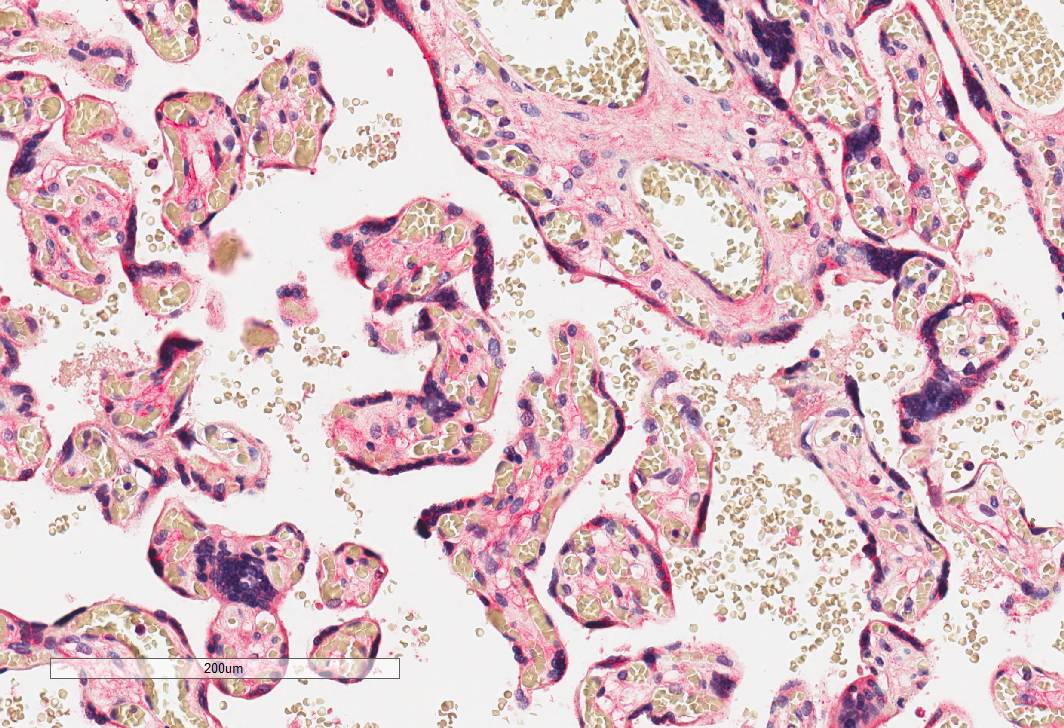 |
